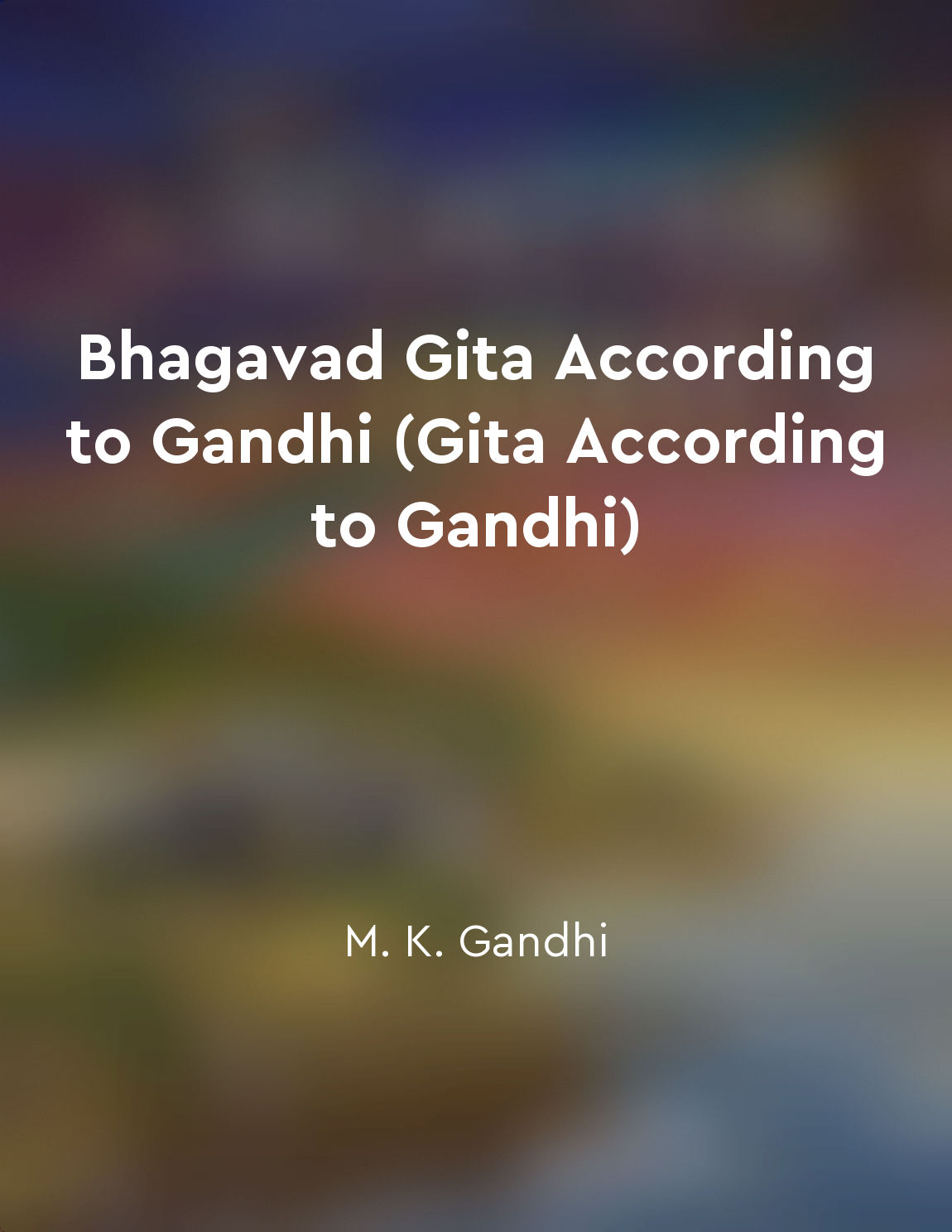Act without attachment to outcomes from "summary" of Bhagavad Gita According to Gandhi (Gita According to Gandhi) by M. K. Gandhi
The idea of acting without attachment to outcomes is a fundamental teaching in the Bhagavad Gita. According to this philosophy, one should focus on performing their duty without being attached to the results. This means that one should not be motivated by the desire for a particular outcome, but rather by the sense of duty and righteousness. By doing so, one can free themselves from the burden of expectations and attachments that often lead to disappointment and suffering. This concept is closely tied to the idea of selflessness and surrender to a higher power. By letting go of the need to control outcomes, one can surrender to the divine will and accept whatever comes their way with equanimity. This requires a deep sense of trust and faith in the universe, knowing that everything happens for a reason and that one's role is simply to play their part to the best of their ability. When one acts without attachment to outcomes, they are able to perform their duties with a sense of detachment and objectivity. This allows them to make decisions based on what is right and just, rather than being swayed by personal desires or fears. By letting go of attachment, one can cultivate a sense of inner peace and contentment, knowing that they have done their best regardless of the results.- Acting without attachment to outcomes is about letting go of the ego and surrendering to a higher purpose. It is a path to liberation from the cycle of desire and suffering, leading to a state of inner freedom and joy. By practicing this teaching, one can cultivate a sense of detachment and serenity in the face of life's challenges, knowing that they are simply playing their part in the grand scheme of things.


